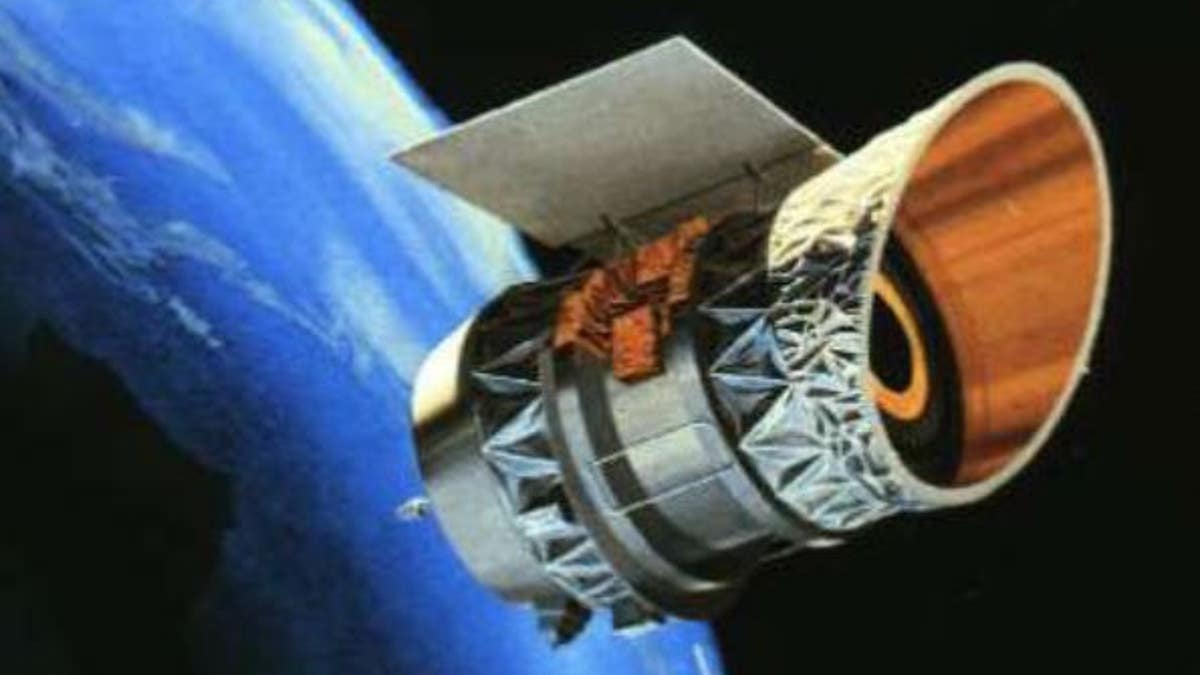Fox News Flash top headlines for Jan. 29
Fox News Flash top headlines for Jan. 29 are here. Check out what's clicking on Foxnews.com.
Two defunct satellites expected to come within a few feet apart and possibly collide instead sped past each other in opposite orbits Wednesday.
Experts initially warned the satellites, an Infrared Astronomical Satellite (IRAS) and the Gravity Gradient Stabilization Experiment (GGSE-4), could collide and send debris through space at remarkable speeds.
TARANTULA NEBULA STUNS IN NEW VIEW FROM THE SPITZER SPACE TELESCOPE

Two satellites crossed path with each other Wednesday, worrying experts who theorized the two could collide and send debris hustling through space. (NASA) (NASA)
The crossover occurred about 560 miles above Pittsburgh around 6:39 p.m., Agence France-Presse reported. The IRAS was launched in 1983 as part of a joint mission with NASA, Britain and the Netherlands, according to the Jet Propulsion Laboratory. The other was a U.S. Air Force experiment launched in 1967, according to NASA.
Had they hit each other, it could have created thousands of pieces of debris, with some 1,000 pieces possibly measuring more than 10 centimeters, astrodynamicist Dan Oltrogge told the news outlet.
Any debris created would not have posed a threat to Pittsburgh, experts said. Around 20,000 pieces of debris larger than a softball are currently orbiting around Earth.
LeoLabs, a satellite-tracking company, tracked the paths of both satellites and said it had not found evidence of new debris.
CLICK HERE FOR THE FOX NEWS APP
"Thankfully our latest data following the event shows no evidence of new debris. To be sure, we will perform a further assessment upon the next pass of both objects over Kiwi Space Radar occurring later tonight," its tweet read.
The last collision of large satellites in space occurred in 2009 when a commercial U.S. Iridium spacecraft hit a defunct Russian satellite over Siberia, the BBC reported.
Fox News' Christopher Carbone contributed to this report.









































